Dispatch from a Foreign Woman Loose in Iran
“Whatever you choose, however many roads you travel, I hope that you choose not to be a lady. I hope you will find some way to break the rules and make a little trouble out there. And I also hope that you will choose to make some of that trouble on behalf of women.” — Nora Ephron
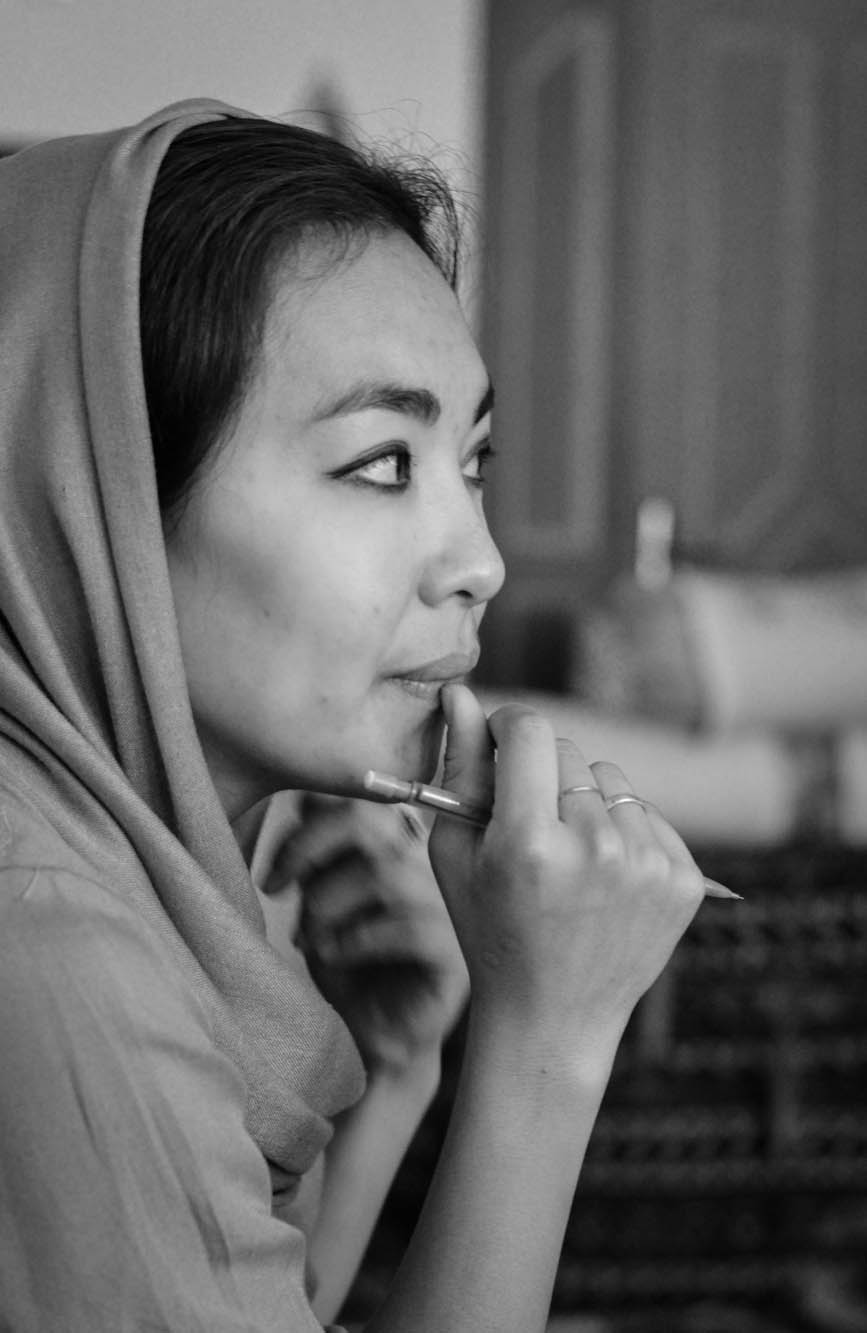
Any of you who write, must have had a “Can I say this?” moment. I have grown up in a world fixated with political correctness and politeness, which I am all for, as long as it doesn’t sweep the problem under the carpet. The idea to write about my experience as a foreign woman in Iran has been churning in my mind for quite some time now, but except for several long-winded rants, it has often been difficult to get it all down into cohesive and comprehensible thoughts. I have been paralysed by my own doubts. Afraid of being misunderstood, misinterpreted, that “you had to be there” to feel the way I did. So I am just going to go for it, because I think it is important and I would not be able to write about all the other wonderful things about our time in Iran, without getting this out first. If I stir up some trouble, that’s ok, because even if you disagree with me, at least it puts the issue on the table.
Oh I was furious, I was fuming by the time I realised women were assigned to the back of the bus. We had just arrived in Tehran at dawn after spending our first few days in Tabriz. I was slightly grumpy from not having slept well on the night train. The train itself was comfortable, but we had shared the 4-person cabin with two other men and though they were extremely kind, I was paranoid about offending them for not behaving properly as a woman. With no other woman to take the lead from, I did not know if I could remove my veil or address them directly, until the polite man asked me if I liked wearing my veil and why I had not taken it off yet. Navigating the public transport etiquette for women in Iran was a sharp learning curve. You can remove your veil while in the cabin but need to put it back on to walk down the corridors. I didn’t know if I could shake the hand of an unknown male or who should take the initiative…as a generally outspoken and sociable person, for one of the rare times in my life, I was completely stumped.
My first days in Iran were a mixture of exaggerated concern for doing the “correct” thing as a woman and making sure I was not offending anyone. I did not want special treatment as a foreigner. This, added to my general weakness of making sure everyone is happy and sometimes over-caring about what other’s think, meant I was one tightly-wound spring ready to pop.
Back at the train station, there was a mother and daughter dressed in black chadors (literally meaning “tent”) seated next to me. As what seemed to be their husband and father approach they sat upright and nodded solemnly as he motioned for them to go. I cannot forget the look on the girl’s face as she lowered her head and obediently shuffled along. I know that this is my completely subjective perception of the situation and they were probably just as tired as I was, but by that time I was seeing everything about women in Iran through frustrated lenses.
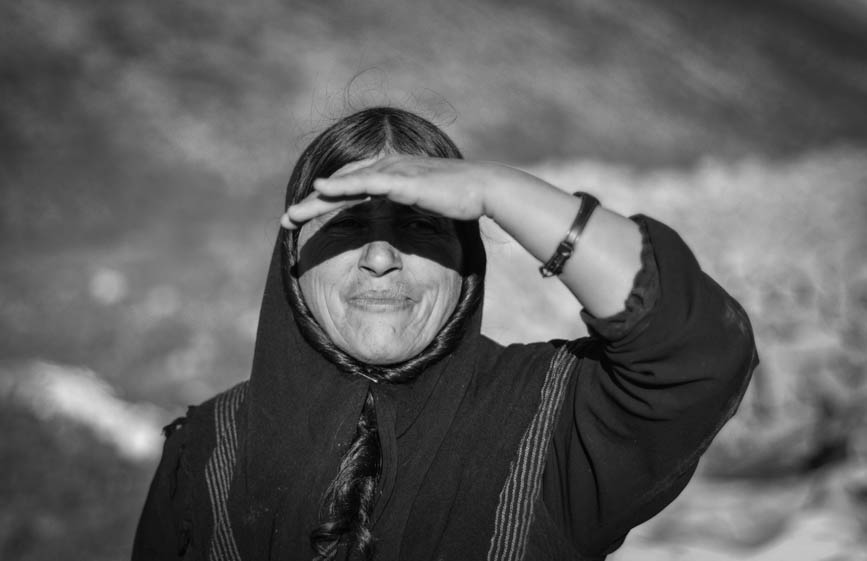
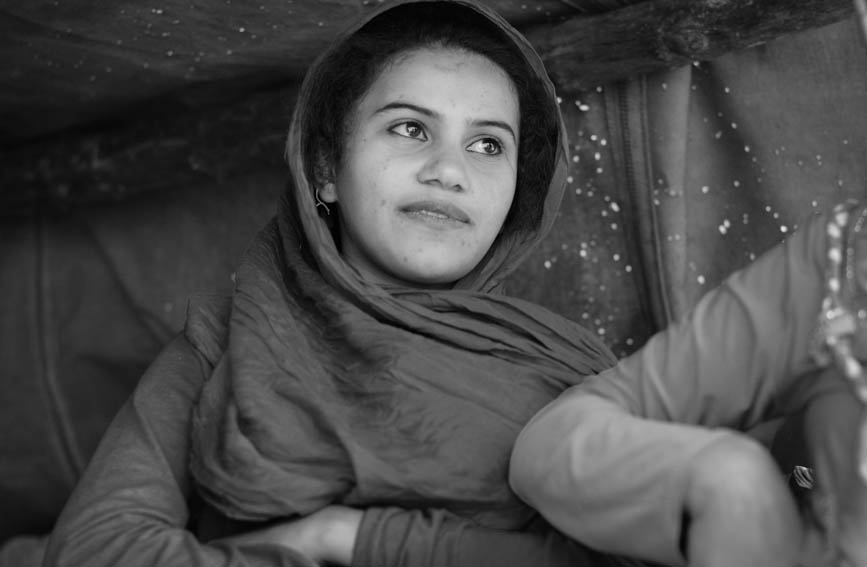

We hop onto the empty BRT (Bus Rapid Transport) to Tajrish Square in north Tehran and Nico and I sit together in the middle. As the bus fills up I gradually realise that all the women are moving towards the back of the bus behind the horizontal metal bar separating the two sections. I began feeling uncomfortable, wondering if I should move to the back as well. My fatigue kept my temper in check, but I was revved up, my blood beginning to boil and I was just getting started. My lips were sealed while my head was screaming, “ARE YOU TELLING ME THAT WOMEN HAVE TO SIT IN THE BACK LIKE ROSA PARKS DID?!”
I scratched at my veil as the morning sun started to shine in through the stuffy windows and the bus filled up. Suddenly I felt more suffocated than usual, I wanted to rip it off in the middle of the street just to see what would happen. I spent the rest of the day in town in a foul mood. The notoriously insane traffic of Tehran became my new enemy. It was the most immediate way I found to express myself. No longer did I tentatively cross the street, but using skills acquired in Beijing traffic, I marched straight forward, daring the cars to hit me. It was my own twisted way of empowering myself in someway as Nico nervously watched and tried to keep up from behind. (sorry Nico, I know I was slightly insane that day…)
When there was no road to cross, the pavement became my punching bag, every time a man would look me up and down or stare at my breasts, I stumped the floor harder. A few gropes of the bum later and I was ready to move on from the pavement to someone’s face. Any place else I would have shouted or insulted the gropers, but here I felt helpless, not knowing how to react for fear of unknown consequences.
The thing is, I have never considered myself a big feminist. I have fought for the human right to water, sustainable agriculture, campaigned against fossil fuels, and numerous other essential issues, but due to my upbringing I never felt the burning need to fight for the equality of women. Except for a handful of isolated incidents, I have never felt strongly discriminated as a woman. And in the case of something happening, I always felt confident enough to argue my way through. Why does that sound dirty somehow? I almost felt guilty that I had been treated so well. It crossed my mind that maybe I have been spoilt, but no, I have not been spoilt, I have been treated the way all women deserve to be treated, with respect, equality and love. I am not saying that women in Iran are not respected or loved, but they are in no way equal.
After numerous discussions with Nico and my own internal debate, I am still trying to figure out where the line should be drawn in the name of culture and religion. As an anthropologist, I have always tried to keep an open mind to cultures different from my own. As an atheist, I have tried to do the same. I always thought, if a woman choses to wear the veil, she should be allowed to. Yet here I was faced with it for the first time, for a month, I would be legally obliged to wear the veil. No choice. No choice for any woman in Iran. There is a difference in wearing the veil after making an educated choice and forced to wear one out of fear of 70 lashes or being persecuted.
I do not want this to be a debate about the veil, many of you have heard of the “My Stealthy Freedom” Facebook campaign by Iranian women removing their veils, this is only one aspect of the picture in terms of women’s rights, there are much more to be fought for first, but it is one of the most visible symbols. Walking through the streets of Tehran, I kept wondering why brothers and fathers are not fighting more for their sisters’ and daughters’ rights? Why isn’t there an International Week of Veil Wearing for Men? Let’s see how they feel like wearing it in 40 degrees sun for 7 days. Then I remember the last time the population in Iran rose up to change something (The Green Movement in 2009) and how that turned out…
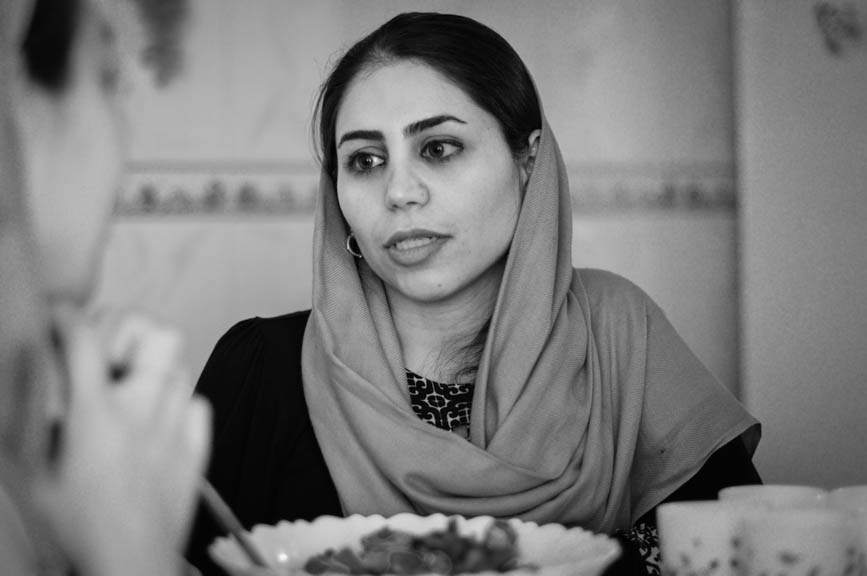
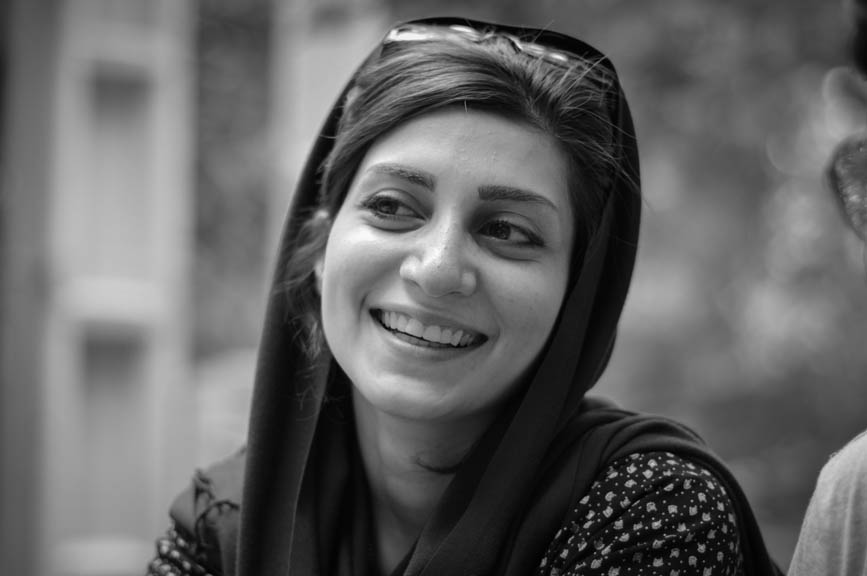
The issue is so multi-layered and complex it is difficult to treat in its wholeness here. Iranian women are increasingly educated, the percentage of women to men being higher in most universities. Iranian women can drive, they can own property and they can file for divorce. Yet officially they are not allowed to smoke in public, ride a bicycle or watch sports with men in public. The Vice president in charge of Women and Family Affairs is a woman – Shahindokht Molaverdi, yet the Guardian Council , the real power centre of the country, is dictated by 12 men.
Women in Iran have had to survive through extreme policies, during the White Revolution of the 1960s, the Shah Mohammad Reza banned the wearing of the hijab altogether, causing conservatives families to keep their daughters at home for fear of leaving the house without a veil. Women finally gained the right to vote and the marriageable age for women was raised to 15 and later 18. Post 1979 Revolution, woman are now legally required to wear the hijab and the marriageable age has been lowered to 9 for girls. While we were there, a girl who was forced to marry her husband at 14 was on death row for killing her husband after 7 years.
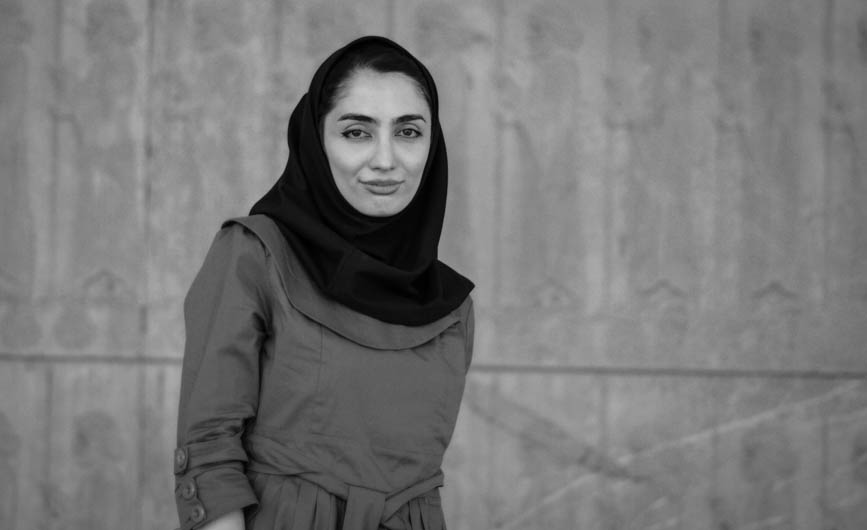
There are two sides to each world in Iran – the external world and the internal world, the official world and the unofficial world.
It was very important for me to see the unofficial world, to see the internal world, the world behind the authority and the drawn curtains. The unofficial world has cafés and bars with signs “Sisters cannot smoke” and 4 veiled ladies smoking right under it, the unofficial world has women in charge of their families and leading their husbands and sons, the unofficial world tells you that when the bus is full, women can move towards the front, but dare a man to go to the women’s section and he will regret it.
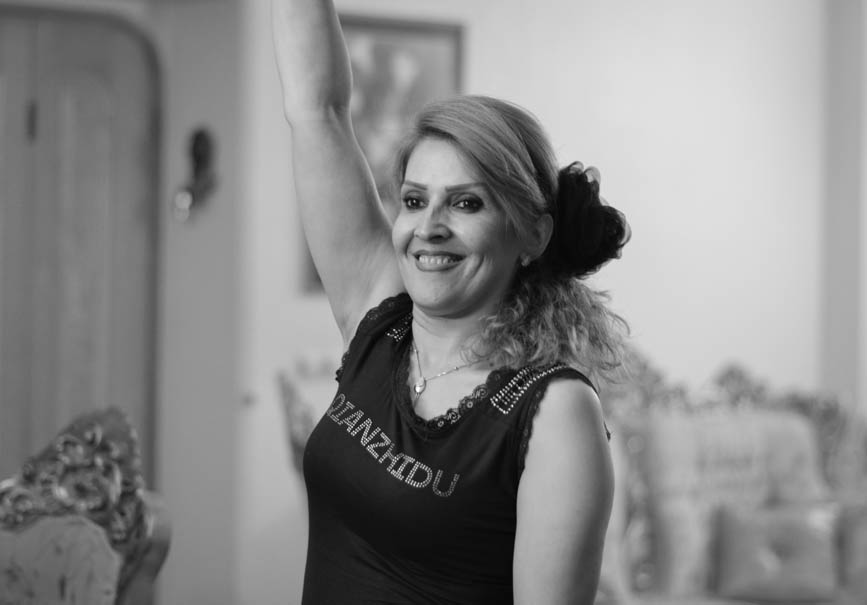
The external and internal worlds have women doing PHDs about french literature and sustainable agriculture, with scholarships to France, Australia and Turkey. There are dentists, musicians, artists and some of the best cinematic talent from women in Iran, but most of all there is hope. There is hope and inspiration in the creativity, strength and intelligence of Iranian women. It is true that I had access mainly to the highly educated liberal women in society, there is still so much more to fight for, but meeting some of the women of Iran showed me once again the resilience of women in being able to make the best out of the situation they have been given. It also gave me wonderful friends that I hope to see again.

In her autobiography, My Story, Rosa Parks explains why she did not give up her seat on the bus – “People always say that I didn’t give up my seat because I was tired, but that isn’t true. I was not tired physically, or no more tired than I usually was at the end of a working day. I was not old, although some people have an image of me as being old then. I was forty-two. No, the only tired I was, was tired of giving in.“
I believe that women I have met in Iran have found ways of not giving in, of conceding certain points for the sake of winning others, of processing it all with way more grace than I ever could. But I also think that this is where politics, culture and religion have crossed the line for me.
By the time I left Iran, my anger had subsided, I was able to see the country for all the other incredible things that it is, but I felt naked suddenly taking off my veil. It only took me a day to adjust to my newfound-follicle-freedom, but left me thinking what a lifetime of enforced veil-wearing and discrimination does to your sense of self.







6 Comments
tammy
July 16, 2014I can only say that I am happy that I wasn’t born in a “veiled” country!
Jo Anne
July 16, 2014Thank you for writing this post and for writing it so honestly, thoughtfully, powerfully. So proud of you, Roomie! You are such a beautiful woman, inside and out.
Sarah
August 7, 2014Really, really enjoyed reading this Gabi. It’s great to read about your travels but it’s even better to read about how you really feel (warts and all) when you see and experience a culture that’s so different from “our” own. Those bits that wind you up are the bits you’ll never forget so keep on storing them up because I guarantee that they are the parts that teach you about what it is you value most of all. Looking forward to the next chapter!! x
Nico & Gabi
August 27, 2014Thanks Sazzle, your words mean a lot to me. The bits that wind you up are definitely the ones that leave an impact. Wish we could meet you somewhere on the way. xx
Jessica Peterson
August 14, 2014I just discovered your blog and love that you cover places like Iran. When I first started traveling, I thought that all cultures and ways of life should be embraced. Then I moved out of the U.S. and traveled Asia and Oceania. There are some evil practices that are culturally, legally and socially acceptable. They are not to be embraced.
I think you deftly handled the subject of the hijab in Iran by reporting how YOU feel about it. Sometimes our gut reactions are right, sometimes we need to dig deeper to understand why people do the things they do. What we have to remember is that all hierarchal societies are abusive and flawed, just to different degrees. I’ve learned that there is no perfect place or culture, but like you, I never tire of experiencing new ways of thinking in far away places.
Global Girl Travels
http://globalgirltravels.com
Travel like a lady
Nico & Gabi
August 27, 2014Thanks Jessica, it is definitely true that things are never black or white and travelling, more than anything, makes me more curious about understanding why people do the things they do. Was excited to see you went to Hong Kong as well, we are heading there slowly and it is my hometown. Keep exploring the world!